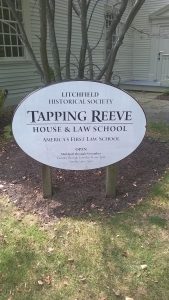“On the Issues”: Former Avery Attorney Criticizes Criminal Justice System
Nine months ago, Dean Strang’s life changed. A well-known criminal defense attorney from Madison, he had been involved in cases that attracted public attention, especially the murder trial a decade ago of Steven Avery, who was accused of murdering a freelance photographer, Teresa Halbach, in 2005 in Manitowoc County. The case attracted attention especially because it came two years after Avery was exonerated and freed after serving 18 years for a previous, unrelated murder. Strang and Jerry Buting, a Waukesha attorney, defended Avery in a trial that ended with Avery being convicted in 2007.
But nothing that happened at that time or in connection with any other case he had worked on prepared Strang for the impact on his life when a Netflix series, “Making a Murderer,” began running in December 2015 and became an international sensation. The case went into great detail in documenting the Avery case. It was widely regarded as supporting the argument that Avery was unfairly convicted.
Strang and Buting found themselves the centers of enormous attention. “It’s sort of like Jerry and I had been handed a microphone,” Strang said at an “On the Issues with Mike Gousha” program at Marquette Law School on Monday. “Now, what are you going to do with the microphone?”

